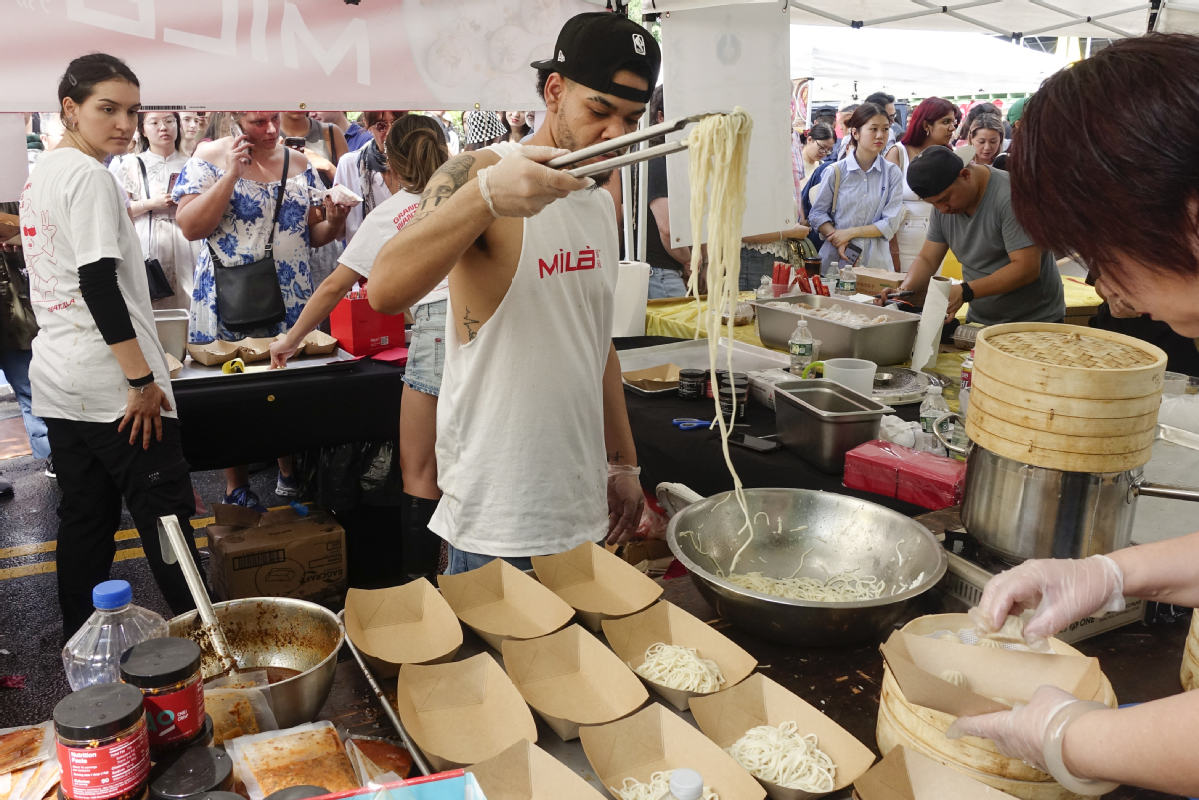Success needs more than pleasing 'Chinese tummy'


The global travel industry is seeing a rise in experience-craving travelers who demand the comfort of regular food while away from home. In the context of Chinese tourists, this phenomenon is often referred to as the "Chinese tummy" — something that is stubborn and uncompromising. Stated differently, many Chinese simply love Chinese cuisines too much.
This strong cultural attachment to Chinese food is driving a new wave of international business opportunities for Chinese catering brands.
For decades, Western food chains such as McDonald's and Starbucks have expanded into the Chinese market, cultivating successfully a taste for Western cuisine among Chinese consumers in the cities.
However, when abroad, many Chinese still prefer their own culinary traditions. Often, without "proper" Chinese food, they can endure no more than a week at most. Then, they are overcome by craving for home food.
For example, when Chinese tourists pack their luggage, they would often include some Chinese instant noodles or even a travel-size electric boiler to cook noodles or simply have hot water.
A bag of instant spicy noodles in an outbound Chinese tourist group is likely to prove popular and sought after, potentially earning its owner extra respect during the trip.
My friend Flora, who relocated to Singapore last year from China, tells me a bubble tea from a Chinese tea beverage chain would often prove to be the high point of her day. This is something she misses the most living outside China.
"Check out what I've got," she texted me, followed by an image of her holding a milk tea from Chagee, a Yunnan province-based tea beverage chain that operates more than 4,500 stores, including 100 overseas.
Recently, at a Singapore shopping center near her office, she found that a majority of popular teahouses, coffee chains, snack bars and restaurants are all brands she had been familiar with while living in Beijing.
An increasing number of Chinese catering operators, teahouses and coffee chains are currently expanding their presence in not only Southeast Asia but also Europe, the Americas and Australia.
For instance, Haidilao, China's largest hotpot chain, has found success by catering to the tastes of overseas Chinese and curious locals alike. Ding Tai Fung has recently established a presence in New York City. Chinese tea chain Heytea has made its European debut by opening a store in London's Chinatown.
During the 2024 Summer Olympics, Chinese tea brands like Chagee and Heytea set up pop-up stores across Paris, pulling in over a thousand visitors daily.
All this clearly suggests that the potential for growth in this sector is immense. According to the China Tourism Research Institute, wanderlust will ensure there will be 130 million outbound Chinese tourists this year.
However, some argue, it wouldn't be enough for Chinese catering players to please the Chinese tummy alone, ignoring other nationals in markets overseas.
Chinese catering brands' go-global strategy should be more than just an exercise in replicating their domestic success. Success in the global market requires more than just serving familiar dishes, market insiders said.
Sustainable global growth would require a collective effort to blend authenticity with localization. It is what internationally acclaimed catering chains, including Starbucks, KFC, McDonald's, have done in the past decades, adapting themselves locally, in terms of what's on the menu, the supply chain and talent.
It also demands a deep understanding of local cultures, regulations, consumer preferences and marketing methods. Chinese catering brands are looking for the magic recipe that can produce long-term success abroad.
Haidilao has introduced a hotpot soup tailored to the Thai palate and serves baguettes in the United Kingdom. This ability to adapt to the local tastes while maintaining the core elements of their Chinese identity, is what sets these brands apart in a crowded international market, and hopefully will help them grow stronger in the future.
By striking the right balance between authenticity and localization, these Chinese catering brands are poised to turn the Chinese tummy into a global business opportunity.




































